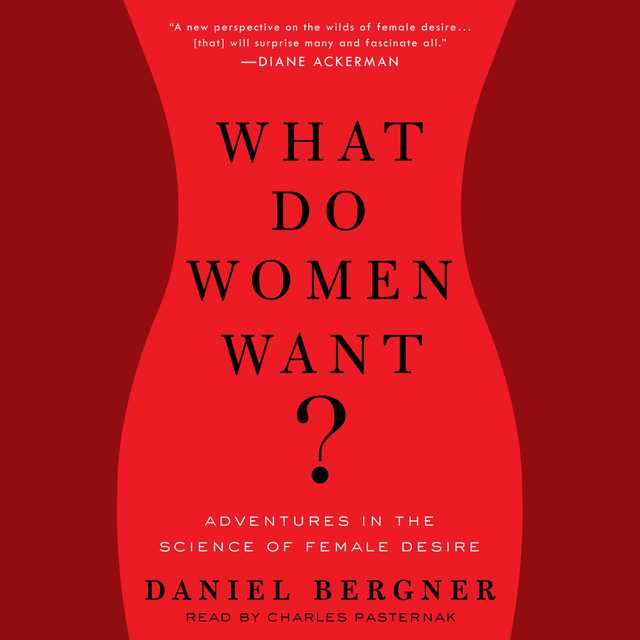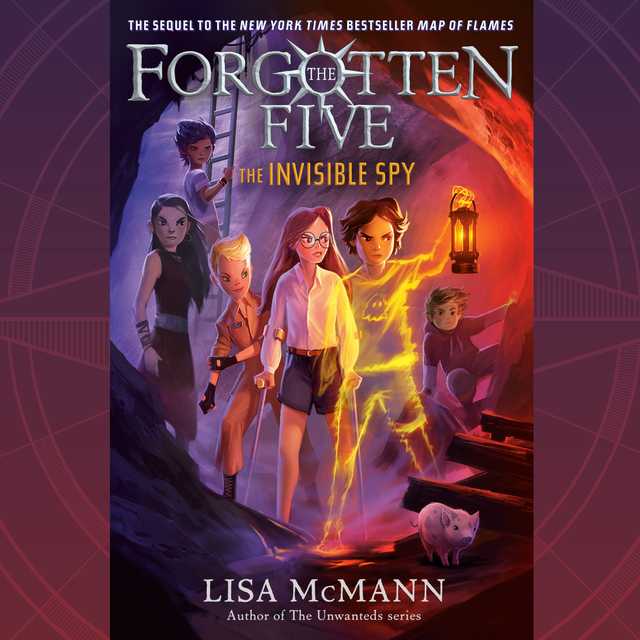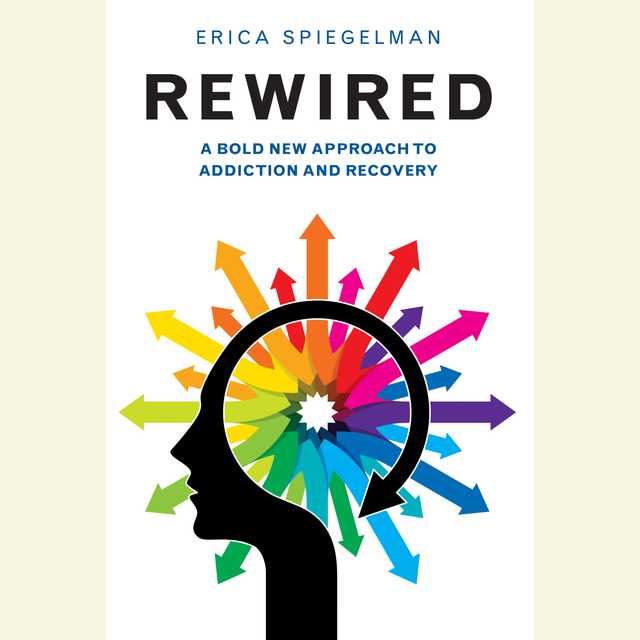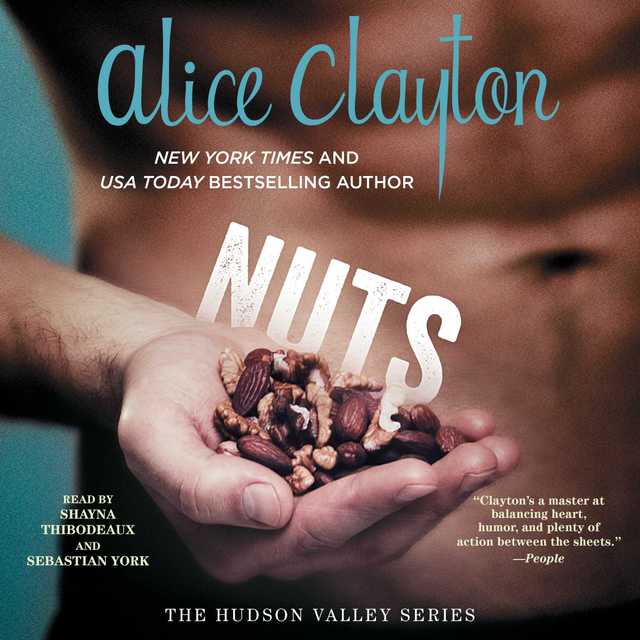What Do Women Want? Audiobook Summary
When it comes to sex, common wisdom holds that men roam while women crave closeness and commitment. But in this provocative, headline-making book, Daniel Bergner turns everything we thought we knew about women’s arousal and desire inside out. Drawing on extensive research and interviews with renowned behavioral scientists, sexologists, psychologists, and everyday women, he forces us to reconsider long-held notions about female sexuality.
This bold and captivating journey into the world of female desire explores answers to such thought-provoking questions as: Are women perhaps the less monogamous sex? What effect do intimacy and emotional connection really have on lust? What is the role of narcissism–the desire to be desired–in female sexuality? Are political gains for women (“No means no”) detrimental in the bedroom? And is the hunt for a “female Viagra” anything but a search for the cure for monogamy?
Bergner goes behind the scenes of some of the most groundbreaking experiments on sexuality today and confronts us with controversial, sometimes uncomfortable findings. Incendiary, profoundly insightful, and brilliantly illuminating, What Do Women Want? will change the conversation about women and sex, and is sure to spark dynamic discussion for years to come.
Other Top Audiobooks
What Do Women Want? Audiobook Narrator
Charles Pasternak is the narrator of What Do Women Want? audiobook that was written by Daniel Bergner
Daniel Bergner is a contributing writer for the New York Times Magazine and the author of five previous books of award-winning nonfiction: the New York Times bestselling Sing for Your Life, What Do Women Want?, The Other Side of Desire, In the Land of Magic Soldiers, and God of the Rodeo. His writing has also appeared in the Atlantic, Granta, Harper’s Magazine, Mother Jones, Talk, and the New York Times Book Review.
About the Author(s) of What Do Women Want?
Daniel Bergner is the author of What Do Women Want?
More From the Same
- Author : Daniel Bergner
- The Mind and the Moon
- Sing for Your Life
- Publisher : HarperAudio
- Abraham
- American Gods [TV Tie-In]
- Dead Ringer
- House of Sand and Fog
- Prey
What Do Women Want? Full Details
| Narrator | Charles Pasternak |
| Length | 6 hours 45 minutes |
| Author | Daniel Bergner |
| Category | |
| Publisher | HarperAudio |
| Release date | June 12, 2013 |
| ISBN | 9780062309648 |
Subjects
The publisher of the What Do Women Want? is HarperAudio. includes the following subjects: The BISAC Subject Code is HEALTH & FITNESS, Women's Health
Additional info
The publisher of the What Do Women Want? is HarperAudio. The imprint is HarperAudio. It is supplied by HarperAudio. The ISBN-13 is 9780062309648.
Global Availability
This book is only available in the United States.
Goodreads Reviews
Buck
August 06, 2016
In university, I once overheard a couple of female friends talking about guys. One was trying to get the other to set her up with somebody. There was the usual question: ‘Well, what kind of guy are you looking for?’ My one friend hemmed and hawed for a minute, and then said, ‘Oh, who am I kidding? I just need to get fucked.’It was an eye-opening moment for me (granted, I was a pretty clueless 19-year old.) On one level, it was liberating to realize that women could be driven by the same imperious desires as men. On another level, it was kind of terrifying. And I think most men, if they’re honest, would admit to some ambivalence about female sexuality. We’re uneasily aware that there’s this powerful force out there that affects our lives in all sorts of ways, for good and ill, but we can’t even begin to understand it. If there’s one consolation here, it’s that women themselves don’t understand it either. Or so says Daniel Bergner in this poppy but fascinating little book. In one of the more prurient experiments he summarizes, female subjects were shown a range of porn—gay, straight, animal, whatever—while hooked up to vaginal sensors that measured their state of arousal. When the women were asked which scenes turned them on, their answers wildly diverged from what the sensors were indicating (‘Nope, sorry, that bit with the monkeys didn’t do anything for me.’) Whereas, when men were shown the same clips, their reported reactions closely matched the sensor readings. So what’s going on here? Why do women apparently misconstrue what their own bodies are telling them? The sexologists don’t rightly know. It could be an effect of sociocultural repression. It could be some kind of psychosomatic disconnect between loins and brains. Or maybe women just don’t like having scientists mucking around in their lady bits.My guess is that this book will make a lot of female readers feel a little better about themselves, a little less weird and ashamed. On the other hand, it’s going to freak out some male readers, especially those in long-term relationships. There’s emerging evidence that, contrary to popular belief, monogamy may be even harder on women than it is on men. Not that monogamy is necessarily wrong – just that its costs are very high and, for many women, simply intolerable. In that respect, What Do Women Want? is a surprisingly melancholy book. There are threads of sadness and desperation running through it. It’s a vivid reminder, in case you needed it, that life is tough, even for the luckiest among us. Here’s my own two-bit theory, cobbled together out of Freud and failure: you’re never going to be satisfied – not for long, and probably only in retrospect. A Korean proverb goes: get married and you’ll regret it, stay single and you’ll regret it. Sounds about right. What Plato called ‘the pursuit of the whole’ takes place down here, in the realm of the incomplete, among the half-assed. Frustration is the norm. As I see it, this isn’t an invitation to cynicism. It’s an invitation to acceptance. In the ordinary course of things, there’s no mingling of souls. There’s Chinese takeout and perfunctory sex. And that’s still pretty good, isn’t it?
Melissa
December 12, 2014
Please be warned, this book is not for people who get easily enraged when conventional wisdom is questioned. In fact, if you are someone who cherishes conventional wisdom, DO NOT READ THIS BOOK. Bake brownies, walk the dog, call a relative, play with the baby, watch a movie, read your Facebook wall, do the dishes. But DO NOT READ THIS BOOK. Because What Do Women Want? is the most empowering book I’ve read in a long time. I gush about all kinds of books that I read, but I got something like a heroin rush from this one, or maybe I should say heroin, cocaine, and meth all mixed together– because mind = blown. Why do I love this book so much? Because women are amazing. Because understanding desire is key to understanding who we are, as women, as men, as transgender people. And that’s all this book is doing– talking about how science blinded itself for so long, and how some scientists are taking off their blinders. There are so many things I learned in this book. I learned that scientists still don’t really understand how female genitalia work. I learned how scientists ignored, for so long, how big the clitoris really is (which holds true for the public today). And how women have so many different pathways to orgasm. How even paralyzed women can still have orgasms. How women are much more able to orgasm without even touching themselves than men are. (Seriously. Women’s bodies are just amazing.) I learned that birth control significantly diminishes a woman’s testosterone levels, and scientists still don’t understand why that kills desire in some women, but doesn’t matter to others. And I learned about monkeys. I learned stuff about monkeys I have never read before. I was fascinated by these monkeys. And I learned that monogamy is actually harder for women than it is for men. I learned that the loss of desire is so profound in some women that they just feel dead inside. I learned all these things women are doing to try to regain their desire. How incredibly difficult that can be. I listened to women talk about their lives. Their real lives. And their sexual lives. I was simply amazed. In the best way possible.This book is awesome.
Anna
July 29, 2013
I despise evolutionary biology because it often works backwards, suggesting that we can understand human behavior by imagining an evolutionary reason for it. I loved how Berger showed that what women say they want and what their bodies respond to are very different things. Women were traditionally considered the more sexual sex because the mind was prized over the body. The idea that women are less sexual actually dates to the Victorian era. Nevertheless, pop psychology loves to suggest that women are inherently more interested in intimacy and that men are naturally less well-suited for monogamy. It should then not be surprising that women have learned to suppress their own urges for fear of being viewed as a whore or aberrant.As women have gained more cultural and economic power, they have also become markedly more sexual, and our culture always views this as a problem. The thousands of articles about hook-up culture are all based on the idea that women are being harmed by casual sex. Berger's books argues that women are much more sexual and that their sexual urges are much more "promiscuous" than men's. He's not suggesting that women may not still prize intimacy for other reasons, but he suggests that intimacy certainly does not increase libido, which most women already know.Although I wish the book were longer and did not sound quite so much like a long magazine piece, I still found the overall argument and science fairly compelling. Some may argue that the book is suggesting that women shouldn't be in long-term relationships, but I'd argue that the book is simply trying to say that women should be honest about their desires and open with their partners. They shouldn't believe there is something wrong with them or fall into the trap of believing that greater emotional intimacy will lead to increased desire--which will only leave them feeling worse about themselves and their partners.
Amy
August 25, 2013
This is one of the better books I've read about the science of female sexuality. Female sexuality is poorly understood because there aren't many sex researchers out there (because of the stigma), and the ones who do exist mostly study men. It has long been conventional (patriarchal) wisdom that men crave lots of sexual partners while women crave close, intimate relationships. But anyone who has been through a long-term relationship or two knows that desire tends to wane over time, and this may actually happen faster for women than for men. This book tells the story of countless women who genuinely love their husbands but have lost their sexual desire for them and desperately want it back.Some of the concepts here were new to me, but made sense, like the idea that female lust is stimulated in part by a feeling of being strongly desired by her partner. And there was some exploration of the concept (not new to me) that arousal in women does not equal consent. I particularly recall a story about a woman who found herself unexpectedly in a sexual situation and was aroused but nonetheless did not want to go through with it. She extricated herself, and later the incident provided endless fantasy material.I also didn't know about Bremelanotide, a drug that appears to strongly stimulate sexual desire in women. It failed FDA approval because of dangerous side effects, but the company is still working on it. The idea is to solve the problem of women who want to stay in their marriages but need their sexual mojo restored. And while such a drug could solve a lot of problems, even save a lot of marriages, it doesn't take much imagination to envision the problems it might create.
Melistress
June 13, 2013
Informative. In some cases, erotic. Probably the best work of non-fiction I have read on female sexuality. I take issue with the title however. It is really hard to take a book seriously when the title alludes to how difficult women are. Really, we aren't much different than men, except perhaps our sexuality is more repressed. Probably a good read for everyone - male and female alike.
Paul
July 03, 2013
I read the author's New York Times Magazine piece based on this work, and decided to go for the book. Daniel Bergner talks to researchers, mostly women, who are empirically investigating female desire, and describes specific findings, as well as patterns emerging in the growing literature. Along the way, much of what our culture likes to believe about female sexuality, and well as what many of the research subjects wanted to believe about themselves, is called seriously into question on increasingly firm scientific ground. Evolutionary psychology, on the basis of what it considers to be adaptive, has posited that women, having more limited opportunity to bequeath their genes, and needing support in child-rearing, will tend to be inclined more toward monogamy, tend to fewer sexual partners, and in general, express these tendencies through greater sexual restraint than men. Men--at least in terms of spreading their genes--supposedly benefit from casting their copiously produced genetic material through as many females as possible. This is a somewhat simplistic summary, since difficult-to-explain cracks in it appear both in human and animal studies. I find evolutionary psychology fascinating, but its theories are often very hard to validate empirically, or to falsify. And the women in the studies cited in What Do Women Want? do nothing to inspire confidence in what one of Bergner's chapter titles calls "the sexual fable of evolutionary science."Meredith Chivers, a leading researcher in women's desire, showed erotic materials to study participants whose responses were measured physiologically using a device called a plethysmograph to gauge vaginal area blood flow. At the same time, the women reported their levels of arousal while looking at these erotic videos, photographs, and in some cases, listening to stories. Members of one group, as a form of control, were attached to a device they were told was a lie detector. Women without the "lie detector" reported low levels of arousal in many cases when the physiological measurements said otherwise. The women in the lie-detector group had self-reported levels of arousal much closer than those who did not believe they were being monitored. Other researchers are looking at what to do about women who have lost desire for their partners in long-term relationships. These women love their husbands or partners, and want to maintain the close bonds. Part of the book looks at pharmaceutical efforts to deal with this. But in the course of talking with women whose desire for their partners has waned, researchers have learned that fantasies of other partners still appeal to the women, and that the women, at least in their expressed wishes, appear no more monogamous by nature than men are typically thought to be. Fantasies that push boundaries and alarm feminists are more common, at least at this point in the field's development, than would commonly be thought. One might say that eating and having sex are the two activities most basic to life, all life, including humans. Eating sustains individuals, and sex sustains the species. No getting around that. But we do need some controls on both, and people have adapted to the need for controlling sexual expression in myriad ways, as any good historical or cross-cultural look at the topic can attest. But could we get along better if we were more conscious of what we're doing? Probably.
Georgia
June 03, 2013
amazing and transformative. It truly changed how I think about my sexual life.
Elizabeth
June 04, 2013
I still need to process all the information here, but I think this book will change my life for the better.
Tom
June 17, 2013
The following notes are for my own amusement.The parallels with the Hobby – excitement of the new, the unknown, the related sense of risk/danger. Good grief I’m the one who wants the romancePage 51: “one lesson,” he said, “is that you don’t want a woman to form her first impression of you when she’s in the wrong menstrual phase. You’ll never recover.” He laughed. – Yes, lol, McFate can be a cruel dude. Much amazing science – for example a female rat manipulating a male rat to enhance her “pleasure” (page 54)See page 58 for a sense of the complexity of desire: “Yet for the excitement of dopamine to fix on an object, for it to be felt as desire rather than as a splintering into attentional chaos, it has to work in balance with other neurotransmitters.” Then more of the story is revealed – so far as we know…”attentional chaos”, I like that.For a grin see page 61: “Pfaus mocked the faith that [male lust feeds on multiple partners – (& that for the female it just isn't so)] rodent females, he informed his undergrads, do more hopping and darting to score with new mates. And they dip their spines deeper, so the new male has an easier time thrusting.I found Chapter 7, Monogamy, the most monotonous chapter of the book. Struggled through it and then, happily, the book once again became interesting. However there was some good stuff in 7, like this quote: “I had a friend who used to say, “the longer you’re married, the larger the bed you need.” What I most disliked was the counseling and therapy sessions. Have a natural aversion to such claptrap.On reading page 187 I could not help but think of Suzy Favor – Suzy was a major motivator in my reading this book - Suzy and that which Suzy has brought into my life. Note: it wasn't so much the specifics as related on the page as the example of what extreme training can do to body chemistry. We’re not so much free will as we would like to think. The last ten pages really wrap up the book – the story is developing and could get very interesting. The last paragraph – page 197 – nails it - be careful of perceptions and more so of conventional wisdom.Daniel Bergner has packed a lot of thought provoking observations into 200 pages. Well worth the price of admission.
Lynn
August 27, 2013
I enjoyed this book because of all the questions it raises. It races through numerous diverse snippets of information which means there is little depth involved but hopefully it will lead to more - and better - investigations and insight into female sexuality. The basic premise it attacks is that women are meant to be less interested in sex than are men, which is something that does need to be laid to rest. Throughout history there seems to be a pendulum swinging from one extreme to the other when it comes to female sexuality: one minute women are hardly sexual at all, the next minute they are sexually insatiable. This book obviously supports the latter.But women, like other female animals, are most likely a combination of both extremes. In the females of most other species this is quite obvious as they respond to their hormones and change from zero interest in sex to a voracious appetite when fertile and 'on heat'. And this is the case with the female rhesus macaques such as "Deidrah" in the book, though the fact that Deidrah has no interest in sex most of the time seems to have passed readers by. I have written more about this in my author blog here on goodreads:"Monkeying About with Daniel Bergner"http://www.goodreads.com/author_blog_...Women are different in many other ways than in the way our sexual behaviour is (mostly) uncoupled from our reproductive cycles but the 'hows' and 'whys' of this uncoupling will, I'm sure, point to some answers about our behaviour, including answers to other questions raised by this book.
Justin
January 01, 2016
Great book on female desire.Quite simply a very good book on female sexuality and desire. I'd recommend it to anyone interested in such things. The parts touching on the psychopharmacology of the new "female desire enhancing" drugs now ready to hit the market was of particular interest to me.
Heather
June 11, 2013
I was so sick of the "woman want caretakers" and "men only want to spread their seed" so this book spoke to me. Those theories always seemed so trite and convenient. I know I never fit into that mold. "Wow, he has such a great retirement plan" was never a thought I had when thinking of having sex with a gentleman or not. It completely upended conventional wisdom on what women want. I loved it.
Mark
November 18, 2014
Science but very interesting
Most Popular Audiobooks
Frequently asked questions
Listening to audiobooks not only easy, it is also very convenient. You can listen to audiobooks on almost every device. From your laptop to your smart phone or even a smart speaker like Apple HomePod or even Alexa. Here’s how you can get started listening to audiobooks.
- 1. Download your favorite audiobook app such as Speechify.
- 2. Sign up for an account.
- 3. Browse the library for the best audiobooks and select the first one for free
- 4. Download the audiobook file to your device
- 5. Open the Speechify audiobook app and select the audiobook you want to listen to.
- 6. Adjust the playback speed and other settings to your preference.
- 7. Press play and enjoy!
While you can listen to the bestsellers on almost any device, and preferences may vary, generally smart phones are offer the most convenience factor. You could be working out, grocery shopping, or even watching your dog in the dog park on a Saturday morning.
However, most audiobook apps work across multiple devices so you can pick up that riveting new Stephen King book you started at the dog park, back on your laptop when you get back home.
Speechify is one of the best apps for audiobooks. The pricing structure is the most competitive in the market and the app is easy to use. It features the best sellers and award winning authors. Listen to your favorite books or discover new ones and listen to real voice actors read to you. Getting started is easy, the first book is free.
Research showcasing the brain health benefits of reading on a regular basis is wide-ranging and undeniable. However, research comparing the benefits of reading vs listening is much more sparse. According to professor of psychology and author Dr. Kristen Willeumier, though, there is good reason to believe that the reading experience provided by audiobooks offers many of the same brain benefits as reading a physical book.
Audiobooks are recordings of books that are read aloud by a professional voice actor. The recordings are typically available for purchase and download in digital formats such as MP3, WMA, or AAC. They can also be streamed from online services like Speechify, Audible, AppleBooks, or Spotify.
You simply download the app onto your smart phone, create your account, and in Speechify, you can choose your first book, from our vast library of best-sellers and classics, to read for free.
Audiobooks, like real books can add up over time. Here’s where you can listen to audiobooks for free. Speechify let’s you read your first best seller for free. Apart from that, we have a vast selection of free audiobooks that you can enjoy. Get the same rich experience no matter if the book was free or not.
It depends. Yes, there are free audiobooks and paid audiobooks. Speechify offers a blend of both!
It varies. The easiest way depends on a few things. The app and service you use, which device, and platform. Speechify is the easiest way to listen to audiobooks. Downloading the app is quick. It is not a large app and does not eat up space on your iPhone or Android device.
Listening to audiobooks on your smart phone, with Speechify, is the easiest way to listen to audiobooks.






























